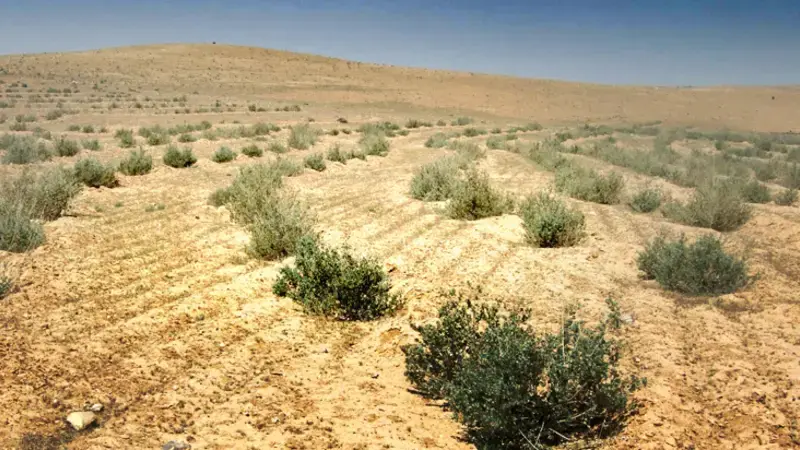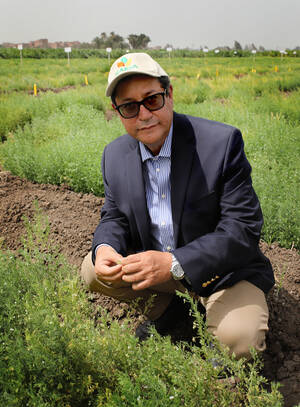CGIAR Kicks Off the CWANA Consultations

Early this July, CGIAR invited over 120 delegates from government and National Agriculture Research and Extension Services (NARES) from across the Central and West Asia and North Africa (CWANA) Region to gather together for the first of a series of CGIAR online consultations about the future agricultural needs of the region.
These consultations aim to discuss how the evolution of the ‘One CGIAR reformulation’ can deliver more impact through agricultural research-for-development in the CWANA Region and how this will better address challenges to ensure sustainable solutions now and in the future. A key cornerstone of this work is the newly formulated CGIAR Initiatives, which are currently under development, and of which nineteen are planned to occur across the region.
CGIAR is evolving along with the transformation of digital knowledge collection and scientific technology and intensifying climate change across the globe. By reformulating its partnerships, knowledge, assets, funding, and global presence, CGIAR can deliver greater integration and impact in the face of the interdependent challenges of today.
The CWANA regional kickoff consultation, opened by ICARDA Director-General Mr. Aly Abousabaa alongside members of the CGIAR Executive Management Team Kundhavi Kadiresan and Elwyn Grainger-Jones began with a discussion on the challenges and potential of the CWANA region.
The climate crisis, along with the pressures of exponential population growth, exacerbates grave regional challenges such as desertification, rising soil salinity, diminishing water resources, and an increase of drought, extreme temperatures, and plant disease and pests.
Yet, the region also offers vast potential. There is a wealth of available and restorable arable land, a workforce that includes an untapped resource of women and youth, a rich pool of plant genetic diversity, and countries keen to develop new technologies and approaches to help drive agricultural growth in economies. The region’s diverse landscape, along with its unique challenges, local knowledge, and CGIAR’s long-term work and relationships, also hold considerable opportunity for dryland science and research relevant to other global dry areas under similar pressures.
The discussion then passed to the delegates who presented challenges and ideas relevant to their unique and regional settings. High on the discussion agenda was how to enhance food production while protecting biodiversity, resources, and the environment even under the pressures of climate change. This included a focus on water scarcity and its sustainable management and utilization through smart climate irrigation, the reuse of water, and the development of circular economies and nexus approach, among other initiatives. Land rehabilitation, conservation of genetic resources, and better agroecology were then raised as critical elements for long-term resilience for agrifood systems in the region.

Other subjects included continued modernization and digitalization of research for development and knowledge sharing and how to promote and develop agricultural research and related job opportunities across the regions. Delegates were also keen to emphasize the importance of ensuring that new and appropriate technologies reach smallholder farmers and pastoralists. With the instability of some areas in mind, the maintenance and restoration of agrifood systems in fragile states and territories were also covered.
Countries and governments present in the region were invited to discuss how they see their collaboration, bilateral mechanisms, and means for partnerships to succeed with the CGIAR. As well as this, there is strong interest to engage with the private sector to drive competitive and profitable value chains and the advancement of technology, facilitated by favorable policies, government investment, and equitable access to resources, services, and markets
Mr. Abousabaa finished by emphasizing his and the CGIAR’s gratitude for the time and commitment shown by delegates at all levels.
Input from the meeting is now being collated and reviewed, and a brief note produced, ready to guide future consultations that will focus on the most pending needs of the countries in CWANA.
